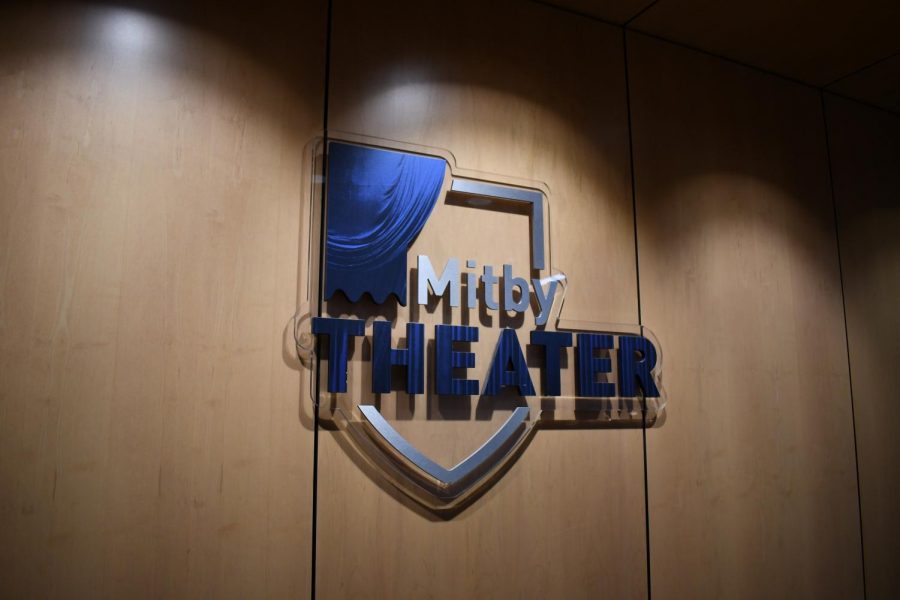The show must go on for the performing arts during COVID-19
The Mitby Theater logo at Truax Campus.
May 5, 2021
The performing arts at Madison College are integral to the creativity and expression of students on campus. Unfortunately, this program has experienced significant setbacks due to regulations caused by COVID-19.
Over the harsh year students have experienced, those involved with the performing arts have kept busy and have contributed to our community in ways unimaginable before the pandemic.
As quarantine began, the theater program was closing the show These Shining Lives. The whole process took about eight weeks.
Miranda Hawk, department chair of Madison College’s Performing Arts, explained the biggest challenges students have faced since that show closed and how students ultimately overcame the pandemic’s obstacles.
The program faced fear and hesitation to move online.
“We were one of the last activities that was allowed on campus,” Hawk recalled.
Theater is not intended to be recorded, and scripts are meant to be performed live.
“There is a very specific relationship with the audience and all of that has gone away” Hawk continued.
Not only does the production change, but the line design and the entire set design changes as well.
As students proceeded to put their hard work into digital practices, an instant challenge became not having a performance to display their training. That challenge quickly brought a change to their hesitant mindset.
“All we have to do is continue to create art and continue to tell stories in ways that are probably closer to film than they are live theater,” Hawk said.
As a result, the Monologue Festival was created. Proposals were sent virtually, requesting monologues from all over the world. Submissions were received from places as far as New Zealand, New York, Florida and California. This was the first dive into what the new world looked like for those in the arts.
The next challenge students took on was The Laramie Project. The production normally runs two hours with a cast on stage transformed into scenes recorded with cell phones and video conferencing programs.
Countless hours were spent with each individual actor trying to find locations in their bedroom, living room or outside on their street to film. Creativity was essential in the success of this project.
Hawk also pointed out how she connected with students in a way she never would have without the challenges COVID-19 brought.
“It is the most hours I’ve put into a production, and I loved it,” Hawk said. “I would spend seven hours a day at rehearsal, but watching each actor create and go through the process, as an educator and theater-nerd, it was awesome.”
Despite the slow start to this new way of life, those in theater are using this time to stay involved in their community. Later this semester, the students are hosting the first black theater festival in town. This festival was originally planned for last year; however, plans were delayed due to the pandemic. The students are eager to now be involved with this event.
“We are taking a risk on other projects as well,” Hawk noted.
Students in theater are partnering with the nursing program in need of actors to play as patients. The actors will roleplay individuals with anxiety, knee pain, high blood pressure and even stoke victims.
Opportunities like this are helpful for the performing arts to stay active and keep busy. Hawk says she is confident the students will have live shows in the future, whereas six months ago the chances were iffy.
“We’ve had this just, “do it” mentality, which has brought the best out of students,” Hawk said. “If we screw up, who cares. We’ve taken chances and done things that we would have never done.”































